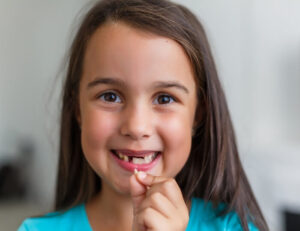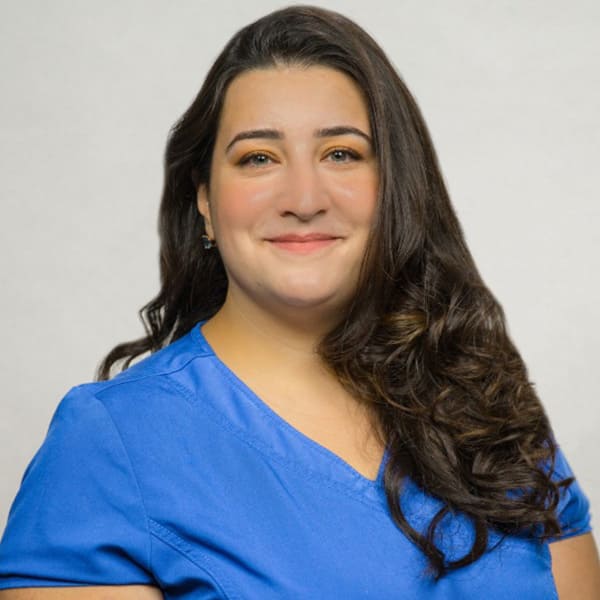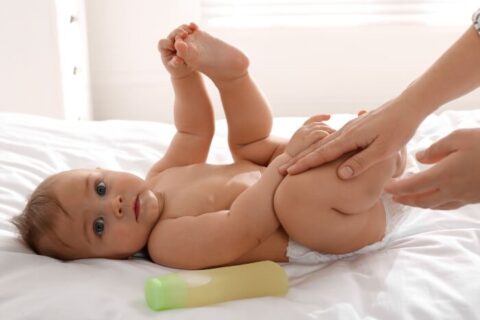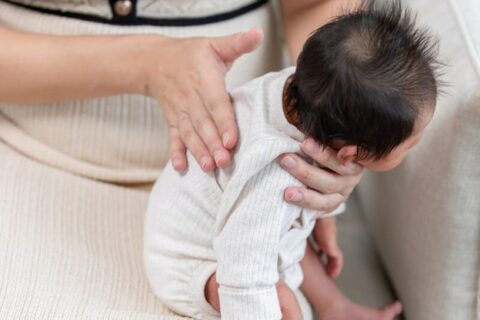When Do Kids Start Losing Teeth
When Do Kids Start Losing Teeth?
If there’s one thing you can be sure of as a parent, it’s that children hit milestones at different times. This holds true for the age kids walk and talk, and also for at what age kids lose teeth. There’s no one right answer, then, but when do kids lose teeth, typically? Most kids begin to lose teeth between the ages of four and seven, but there’s really no “normal.” The earlier your children get their teeth, the earlier they’re likely to lose them. However, if your child loses a tooth before age four, or hasn’t lost one yet and is turning eight, it’s wise to ask the dentist for a consultation so you can make sure everything is proceeding as it should.

What Should I Do with a Wiggly Tooth?
Most of the time, you don’t have to do anything! The tooth will get looser and looser until it eventually falls out. Don’t be too squeamish about your child wiggling his or her tooth, though. Some kids like to wiggle their teeth with their tongues, while others prefer to use their fingers. Just make sure your little one’s hands are clean before they go into the mouth!
What Age Do Kids Lose Teeth?
After that first tooth, between ages four and seven, you can expect your kids to keep losing teeth for a few years. Some children lose all of their baby teeth by the time they’re 10 years old, and almost all kids lose their last baby teeth by the time they turn 12. There’s no set order in which kids lose their teeth, but if you have concerns, you should discuss them with your child’s dentist.
Which Teeth Do Kids Lose?
Typically, the first teeth to grow in are the first to fall out, and those teeth are usually the front teeth on the bottom. After that, the other front top and bottom teeth will fall out: usually this means the child will lose eight teeth over the course of two years. It doesn’t really matter the order in which they fall out, but the last teeth to go are typically the top canines or the second set of molars. In total, how many teeth do kids lose? Just as they had 20 baby teeth grow in, most children have 20 teeth fall out, to make way for their permanent teeth.
How to Handle Loose Baby Teeth
Never pull a tooth that isn’t very loose. Some children are excited about loose teeth, others are nervous, and pulling a tooth that’s not ready to come out can cause pain and additional anxiety. You want your kids to understand that losing their baby teeth is a perfectly normal process, and you want it to be as easy and comfortable as possible. If the lose baby tooth is causing discomfort when the child eats or brushes, over-the-counter pain relievers should help. Try to get your children excited about losing their teeth, talking up the beautiful new grown-up teeth they’re about to grow, and starting fun traditions like the Tooth Fairy.
What if Permanent Teeth Don’t Grow in After Losing Baby Teeth?
Usually, baby teeth don’t fall out until the permanent teeth push them out of the way. The pressure of an adult tooth coming in will cause the roots of the baby tooth to dissolve, so that the teeth can fall out on their own and be replaced fairly quickly. However, some children lose their baby teeth early, either because of an injury or because of tooth decay. If this happens, and the permanent teeth aren’t ready to come in, it could cause a problem with the alignment of the teeth. Without the adult tooth to fill the empty space left by the baby tooth, other teeth can shift into the space and cause problems when the adult tooth finally begins to erupt. If your child loses a tooth early, the dentist may recommend a dental appliance like a spacer or a space maintainer to hold the space for the adult tooth.
Loose Tooth, How Long Will It Take to Fall Out?
Just as with every other part of this process, the length of time a loose tooth will take to fall out varies between children. For some, it takes only a few days for a wiggly tooth to come out. For others, though, it can take a few months. IF your child is impatient and wants to speed the process, wiggling the tooth can help.
What If My Child’s Teeth Aren’t Falling Out?
It is not usually a major problem for teeth to fall out later than you expect, but if you have concerns, contact the dentist. Sometimes, a permanent tooth will begin coming in before the baby tooth is gone, and this can cause problems. If the baby tooth is loose, you may be able to pull it out on your own. However, it’s always safest to call your dentist for advice.
When Does My Child Need to Go to the Dentist?
Children should have their first dental appointments about six months after the eruption of the first tooth, or by age 12 months, at the latest. Seeing the dentist early helps children get used to regular dental appointments and makes them less likely to fear going to the dentist. Early dental appointments can also help keep little mouths healthy, and because the dentist is familiar with your child’s mouth, he or she will be better able to spot any problems before they become major issues. Additionally, when you already have a relationship with a dentist, it’s much easier to find answers if you have questions about your child’s loose teeth.
Brevard Health Alliance is Here for You
Whether you need a dentist, a primary care physician, or a behavioral health specialist, Brevard Health Alliance, Inc. is here for you. Brevard County’s only Federally Qualified Health Center, BHA offers extensive health care services on a sliding-fee scale, so that we can treat residents regardless of their ability to pay. We’re committed to providing an extraordinary quality of care for our patients in order to improve the health status of Brevard County. Our focus is on continually improving the quality and efficiency of our care, and on ensuring that every patient we serve is heard, encouraged, and respected. As your family health care provider, we strive to provide not just acute care but also preventive care and health care related education. Our board certified physicians, advanced practice nurse practitioners, and physician assistance provide primary care that includes well child checkups, well woman care, and physicals, along with chronic disease management. In fact, since 2005 we’ve provided not only primary care services, but also behavioral health services, dental services, diagnostic services, resource management services, pharmacy services, women’s health care and obstetrics, Hepatitis C and HIV services, extended hours pediatric walk-in care, and specialty referrals. For more information, to find a location, or to make an appointment, contact us through our website.
















































































































































